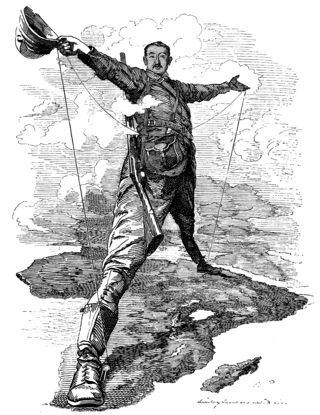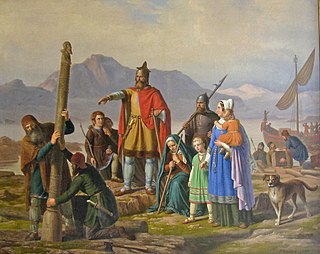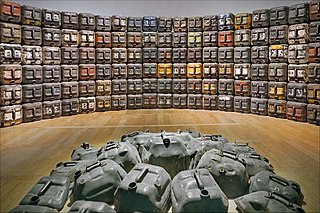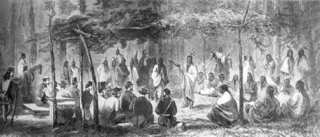Related Research Articles

Cultural imperialism comprises the cultural dimensions of imperialism. The word "imperialism" describes practices in which a country engages culture to create and maintain unequal social and economic relationships among social groups. Cultural imperialism often uses wealth, media power and violence to implement the system of cultural hegemony that legitimizes imperialism.

Colonialism is the establishment and maintenance of one group of people as superior to other peoples and areas, often for imperialist control and exploitation, and through a range of practices and relations of colonization, installing coloniality and possibly colonies. That said there is no clear definition of colonialism and definitions may vary depending on the use of the term and context.

Imperialism is the practice, theory or attitude of maintaining or extending power over foreign nations, particularly through expansionism, employing both hard power and soft power. Imperialism focuses on establishing or maintaining hegemony and a more or less formal empire. While related to the concepts of colonialism, imperialism is a distinct concept that can apply to other forms of expansion and many forms of government.
Decolonization or decolonisation is the undoing of colonialism, the latter being the process whereby imperial nations establish and dominate foreign territories, often overseas. The meanings and applications of the term are disputed. Some scholars of decolonization focus especially on independence movements in the colonies and the collapse of global colonial empires. Other scholars extend the meaning to include economic, cultural and psychological aspects of the colonial experience.

A settler is a person who has immigrated to an area and established a permanent residence there.

European colonialism and colonization is the policy or practice of acquiring full or partial political control over other societies and territories, founding a colony, occupying it with settlers, and exploiting it economically. For example, colonial policies, such as the type of rule implemented, the nature of investments, and identity of the colonizers, are cited as impacting postcolonial states. Examination of the state-building process, economic development, and cultural norms and mores shows the direct and indirect consequences of colonialism on the postcolonial states.
The genocide of Indigenous peoples, colonial genocide, or settler genocide is the intentional elimination of Indigenous peoples as a part of the process of colonialism.

Settler colonialism occurs when colonizers invade and occupy territory to permanently replace the existing society with the society of the colonizers.

Decoloniality is a school of thought that aims to delink from Eurocentric knowledge hierarchies and ways of being in the world in order to enable other forms of existence on Earth. It critiques the perceived universality of Western knowledge and the superiority of Western culture, including the systems and institutions that reinforce these perceptions. Decolonial perspectives understand colonialism as the basis for the everyday function of capitalist modernity and imperialism.
Settler colonialism in Canada is the continuation and the results of the colonization of the assets of the Indigenous peoples in Canada. As colonization progressed, the Indigenous peoples were subject to policies of forced assimilation and cultural genocide. The policies signed many of which were designed to both allowed stable houses. Governments in Canada in many cases ignored or chose to deny the aboriginal title of the First Nations. The traditional governance of many of the First Nations was replaced with government-imposed structures. Many of the Indigenous cultural practices were banned. First Nation's people status and rights were less than that of settlers. The impact of colonization on Canada can be seen in its culture, history, politics, laws, and legislatures.

The connection between colonialism and genocide has been explored in academic research. According to historian Patrick Wolfe, "[t]he question of genocide is never far from discussions of settler colonialism." Historians have commented that although colonialism does not necessarily directly involve genocide, research suggests that the two share a connection.
Unions latines (UL) was an early 20th century fascist Algerian political party.
Patrick Wolfe was an Australian historian and scholar who is often credited with establishing the field of settler colonial studies. He made significant contributions to several academic fields, including anthropology, genocide studies, Indigenous studies, and the historiography of race, colonialism, and imperialism.

Zionism and the Israeli–Palestinian conflict have been described as a form of settler colonialism. Patrick Wolfe, an influential theorist of settler colonial studies, considered Israel an example and discussed it in his 2006 essay "Settler colonialism and the elimination of the native". Other scholars who have used a settler-colonial analysis of Israel/Palestine include Edward Said, Rashid Khalidi, Noam Chomsky, Ilan Pappe, Fayez Sayegh, Maxime Rodinson, George Jabbour, Ibrahim Abu-Lughod, Baha Abu-Laban, Jamil Hilal, and Rosemary Sayigh. Many of the fathers of Zionism themselves described it as colonialism, such as Vladimir Jabotinsky who said "Zionism is a colonization adventure".
Lorenzo Veracini is a historian and professor at Swinburne University of Technology’s Institute for Social Research. He is the editor in chief of Settler Colonial Studies and has been a key figure in the development of the field of settler colonialism. His 2010 book Settler Colonialism: A Theoretical Overview was described as "comprehensive though succinct" and "probably the best justification of the imperative to view settler colonialism as significantly different from traditional or classical colonialism".
Welfare colonialism is a form of colonialism where investments by the colonizer in the native population, ostensibly intended to improve their quality of life, contribute to the dissolution of indigenous institutions thus perpetuating dependency and creating a permanent underclass. Though usage of the term dates from the 1950s, the concept is often associated with anthropologist Robert Paine, who expanded and developed it while observing the failed economic integration of the native population in Northern Canada. In welfare colonialism, subjugated peoples typically remain impoverished despite huge sums invested nominally for their welfare while their standard of living declines. The concept has been used to explain the ongoing poverty and low living standards of native populations in many countries, particularly those that that have been subject to settler colonialism.

Denial of genocides of Indigenous peoples consists of a claim that has denied any of the multiple genocides and atrocity crimes, which have been committed against Indigenous peoples. The denialism claim contradicts the academic consensus, which acknowledges that genocide was committed. The claim is a form of denialism, genocide denial, historical negationism and historical revisionism. The atrocity crimes include genocide, crimes against humanity, war crimes, and ethnic cleansing.

Indigenous response to colonialism has varied depending on the Indigenous group, historical period, territory, and colonial state(s) they have interacted with. Indigenous peoples have had agency in their response to colonialism. They have employed armed resistance, diplomacy, and legal procedures. Others have fled to inhospitable, undesirable or remote territories to avoid conflict. Nevertheless, some Indigenous peoples were forced to move to reservations or reductions, and work in mines, plantations, construction, and domestic tasks. They have detribalized and culturally assimilated into colonial societies. On occasion, Indigenous peoples have formed alliances with one or more Indigenous or non-Indigenous nations. Overall, the response of Indigenous peoples to colonialism during this period has been diverse and varied in its effectiveness. Indigenous resistance has a centuries-long history that is complex and carries on into contemporary times.
Damien Short is a professor of human rights and environmental justice that works for the School of Advanced Study. He is also a co-director of the Human Rights Consortium. His research interests include colonialism, genocide, and ecocide.
References
- ↑ Crotty, Thomas (2018). "Beyond Genocide: a comparative analysis of the elimination of Australia's Indigenous and Torres Strait Islander people". NEW: Emerging scholars in Australian Indigenous Studies: 32–37. doi: 10.5130/nesais.v2i1.1470 .
- ↑ Klein, Elise (2020). "Settler colonialism in Australia and the cashless debit card". Social Policy & Administration. 54 (2): 265–277. doi:10.1111/spol.12576. hdl: 11343/276832 .
- ↑ Veracini, Lorenzo (2007). "Historylessness: Australia as a settler colonial collective". Postcolonial Studies. 10 (3): 271–285. doi:10.1080/13688790701488155. hdl: 1885/27945 .
- ↑ Veracini, Lorenzo (2013). "'Settler Colonialism': Career of a Concept". The Journal of Imperial and Commonwealth History. 41 (2): 313–333. doi:10.1080/03086534.2013.768099.
- ↑ Strakosch, Elizabeth (2019). "The technical is political: settler colonialism and the Australian Indigenous policy system". Australian Journal of Political Science. 54 (1): 114–130. doi:10.1080/10361146.2018.1555230.